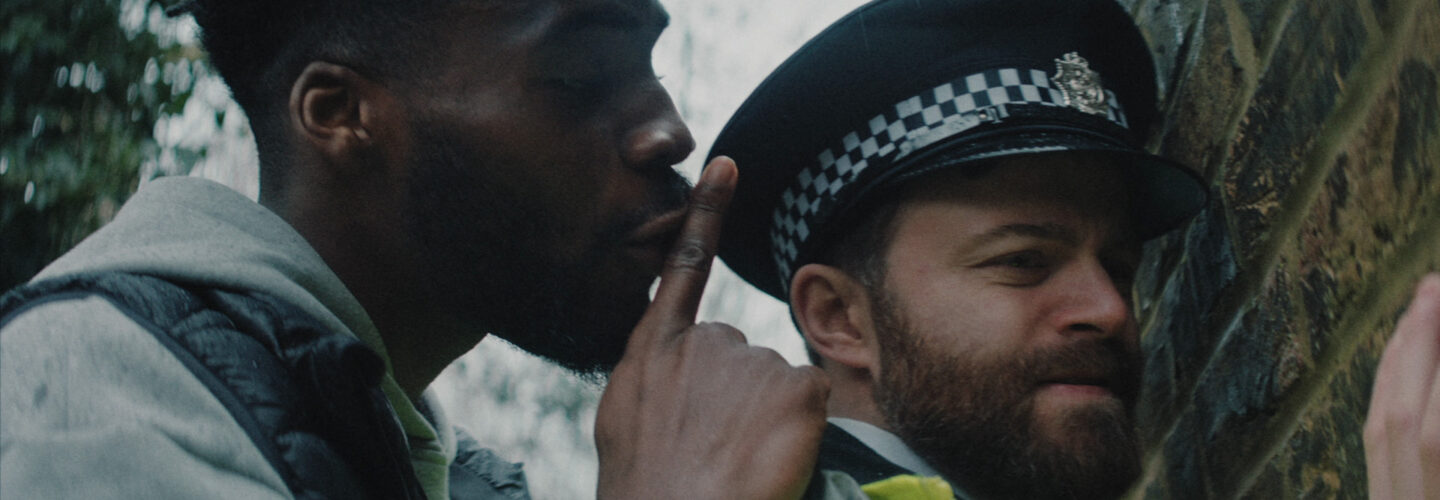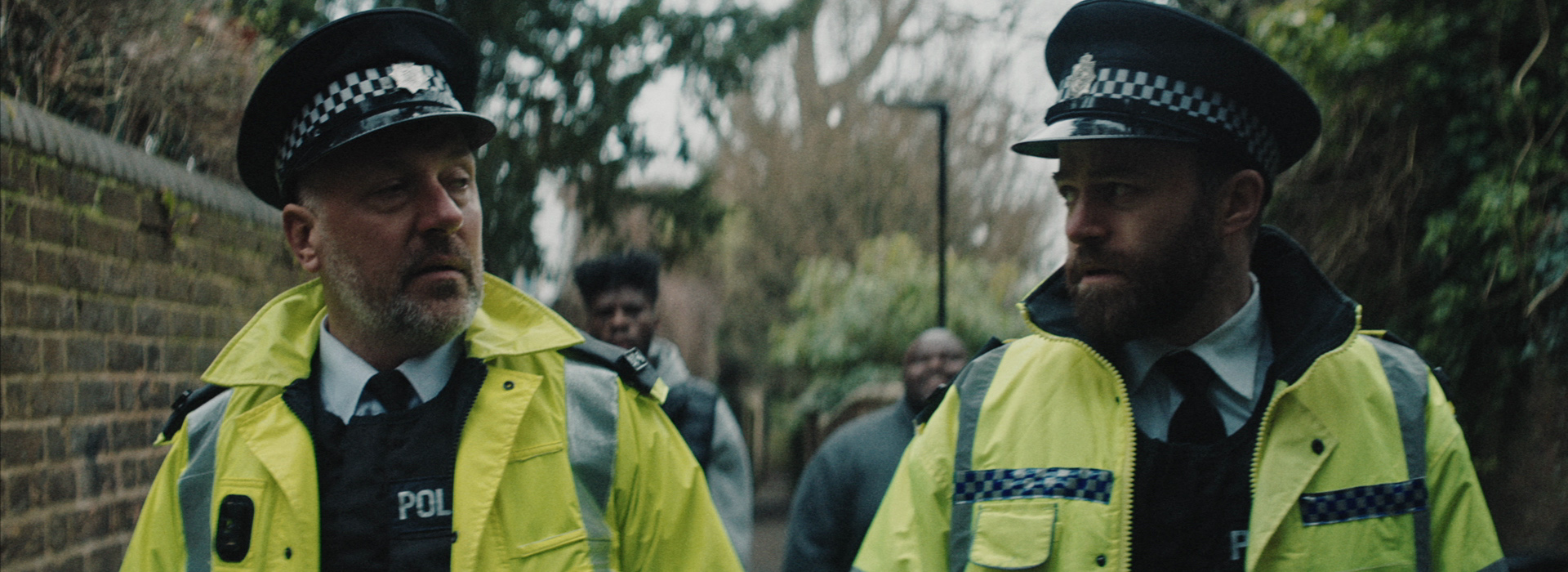
Living in Britain – a country widely considered to be an open-minded and multicultural haven (or at least it used to be pre-Brexit), it’s tempting to shake our heads in disbelief and tut disapprovingly at just how racist America is. But downplaying our part in this global, systematic and deeply rooted problem is shameful at best, and dangerous at worst. Stop and Search, directed by Harry Jackson, is centred around the fact that black people in UK are almost ten times more likely to be stopped and searched by the police, than white people. But rather than the cowed, shocked respect we find on our phone and TV screens amidst the worldwide Black Lives Matter protests, the satirical comedy approaches the subject with dark humour instead, hammering in the absurdity of racism. Jackson sheds light on an issue already in the spotlight, by asking the simple question it all boils down to: how would you feel if it was the other way around? But will it be enough to guide the blind? DN is proud to present the premiere of Stop and Search and to chat to Harry Jackson about his motivation, inspiration and more.
What inspired the idea for the film?
If you’re black in the UK you’re 9.7 times more likely to be stopped and searched than white people. This statistic is for the year ending March 2019. Frustratingly this problem has only got worse since then. Not only has stop and search increased – 30,608 searches in April 2020 during lockdown. But according to the Met the rate that BAME and especially black people are disproportionately searched has increased as well. I wanted to make a film that would be part of an effort to put the issue on the agenda, in an unusual and interesting way.
With such a high calibre of actors, can you tell us about your casting process?
I worked with Selom and Dean on my previous short film MatchBox and with Phil on my grad film Little. I had seen Alessandro in Olivier Award winning Flesh and Bone and knew him from uni. So basically I already had a personal relationship with all of them, which can be really useful. I count myself lucky that they are also brilliant actors who have been in things like Attack the Block, Top Boy, Band of Brothers and All the Money in the World. Phil is a brilliant director himself though so I had to be on my toes… Check out his excellent debut feature Villain.
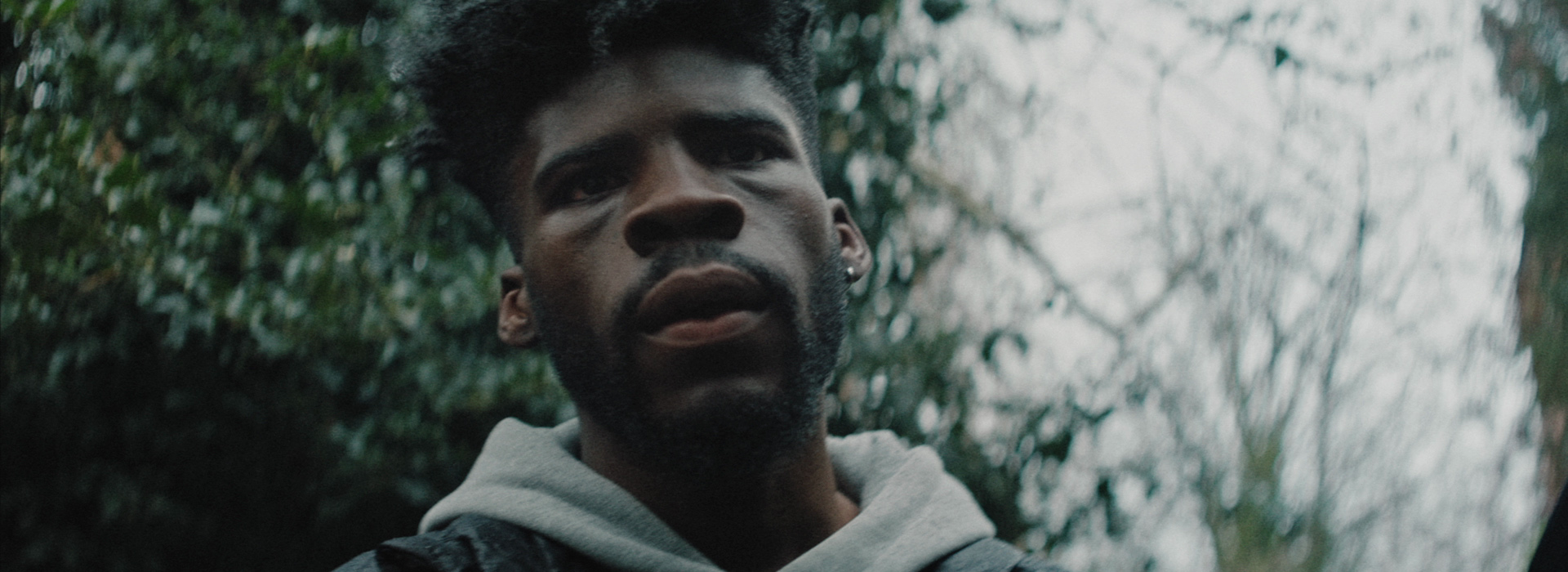
Why was it important to inject humour into what is a very serious subject matter?
Last year Zayd Atkinson, a young black man in Colorado had a gun drawn on him by a white police officer for carrying a weapon – the ‘weapon’ was a litter picker. In the UK, black men are losing count of how many times they’ve been told ‘they match the description’. The racism is so thinly veiled it is laughable. That’s not to say we shouldn’t take it seriously, of course we should. But humour can play a powerful role in exposing injustice for what it really is. These institutions deserve to be mocked, and then they deserve to be changed.
In the UK, black men are losing count of how many times they’ve been told ‘they match the description’. The racism is so thinly veiled it is laughable.
What are you hoping to achieve with this role reversal narrative?
Sadly we have become so used to black men in particular being targeted by the police that it has almost become dangerously normalised. Part of my thinking behind the role reversal was that it would re-contextualise the interaction between police and young black men, so we are reminded of how ridiculous and unfair those interactions can be.
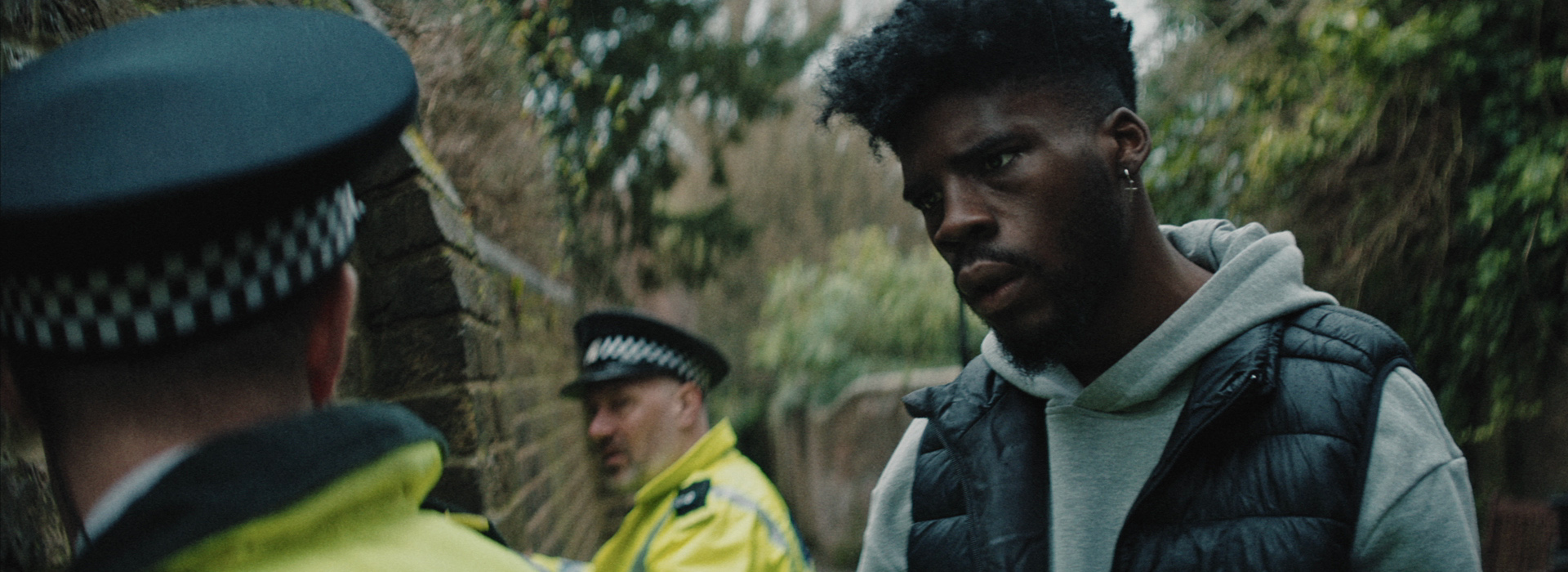
Stop and Search is markedly different from your grad film Little and your more recent shorts Lifeline and Matchbox. What compelled you to explore the discrimination and racism in the UK?
They are different, but I think they all have a similar approach. I’m interested in making films that are current. Films that respond to the modern world in a way that hopefully makes people think and feel differently. Lifeline is about the relationship between AI and corporatism. MatchBox is about the transactional nature of online dating. Stop and Search is about institutional racism. They are all issues I care about and wanted to explore through comedy and drama.
Some viewers could argue that a white director making a film about the experience of black characters is disingenuous and even wrong. What would you say to them?
One thing that has been very clear over the last few weeks is that it isn’t enough to show support and solidarity, it’s how you do it as well. So I understand where those concerns would come from. If you’re going to write characters and experiences different from your own, you have a responsibility. For that reason it was essential for me to research, talk to friends who’ve been stopped and searched and to work with the right people.
Selom and Alessandro have both been stopped and searched themselves so it was invaluable to have them there to draw on their experiences. I hope that by doing these things, the film isn’t misrepresentative and that it has an overall positive impact.
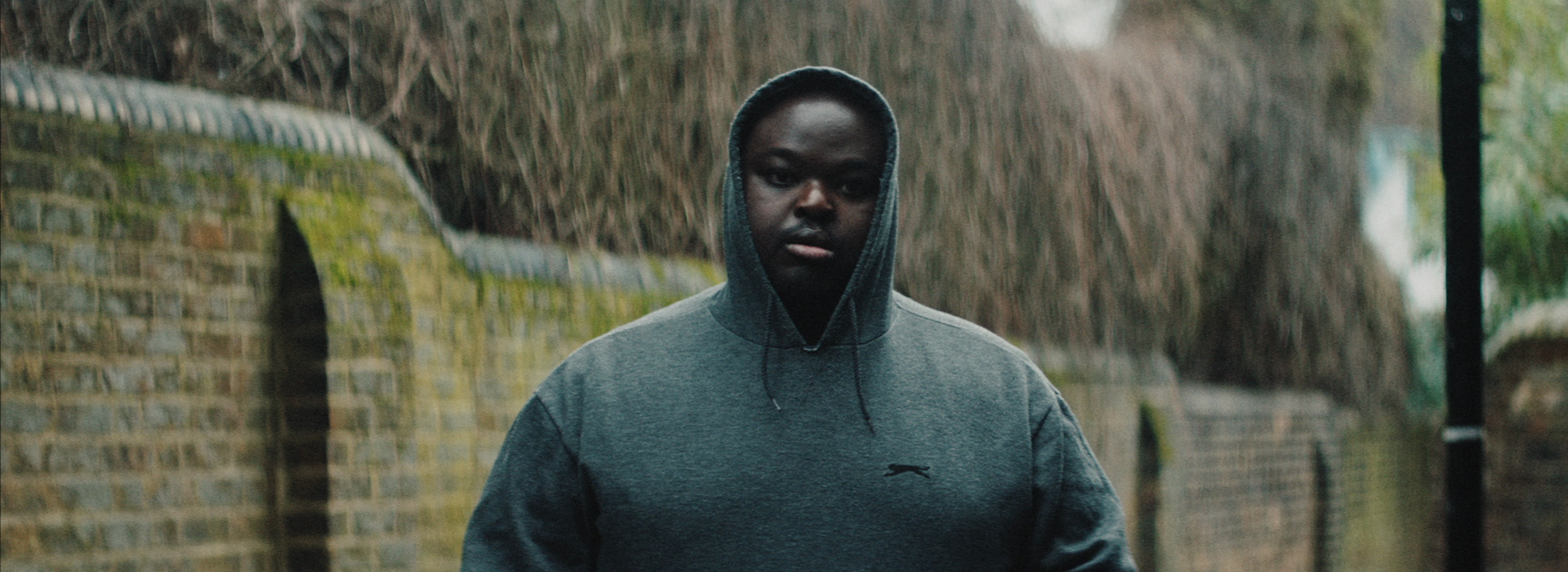
What do you hope people will take away from Stop and Search, especially during this period of worldwide Black Lives Matter protests.
The UK is not innocent- that’s an important message. There is a lot we need to change and stop and search is such an obvious illustration of institutional racism it has to be near the top of the list. Most people know the statistics, but almost accept them as inevitable. There isn’t enough anger about them. Film has an amazing capacity to change this because it operates on an emotional level. I hope people take away a better understanding of how humiliating the experience of stop and search is, and how humiliated we all should feel, living in a society that allows it.
It isn’t enough to show support and solidarity, it’s how you do it as well.
Are there any films/filmmakers that influence and inspire your work?
As you might expect, films that use humour to approach difficult subjects inspire me. Four Lions, Do the Right Thing, Dr. Strangelove, The Man in the White Suit and The Firemen’s Ball all come to mind. I’d also massively recommend Fruitvale Station. It’s about Oscar Grant, a 22-year-old black man who was murdered by the police. It is an incredible film.
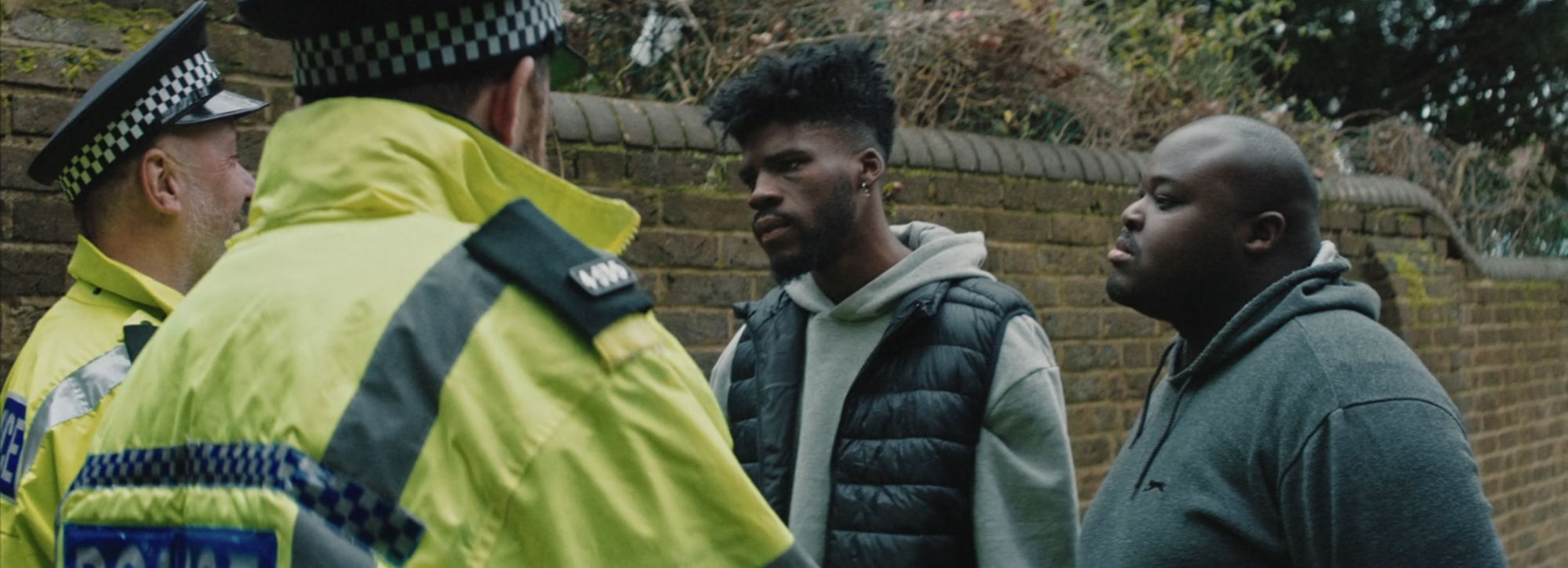
What are you working on next?
I’m currently developing a feature film script with Tibo Travers at SweetDoh! I also have a job lined up as a rehearsal assistant to Mike Leigh on his next film, which will be a great opportunity to watch and learn. It can be easy to fall into habits as a filmmaker; I’m looking forward to disrupting them.
For those of you who want to engage further in the issues raised in this interview, DN has curated a collection of short films entitled I Can’t Breathe which we hope will spark discussion and encourage positive collective action towards the dismantling of systemic racism across the globe.

